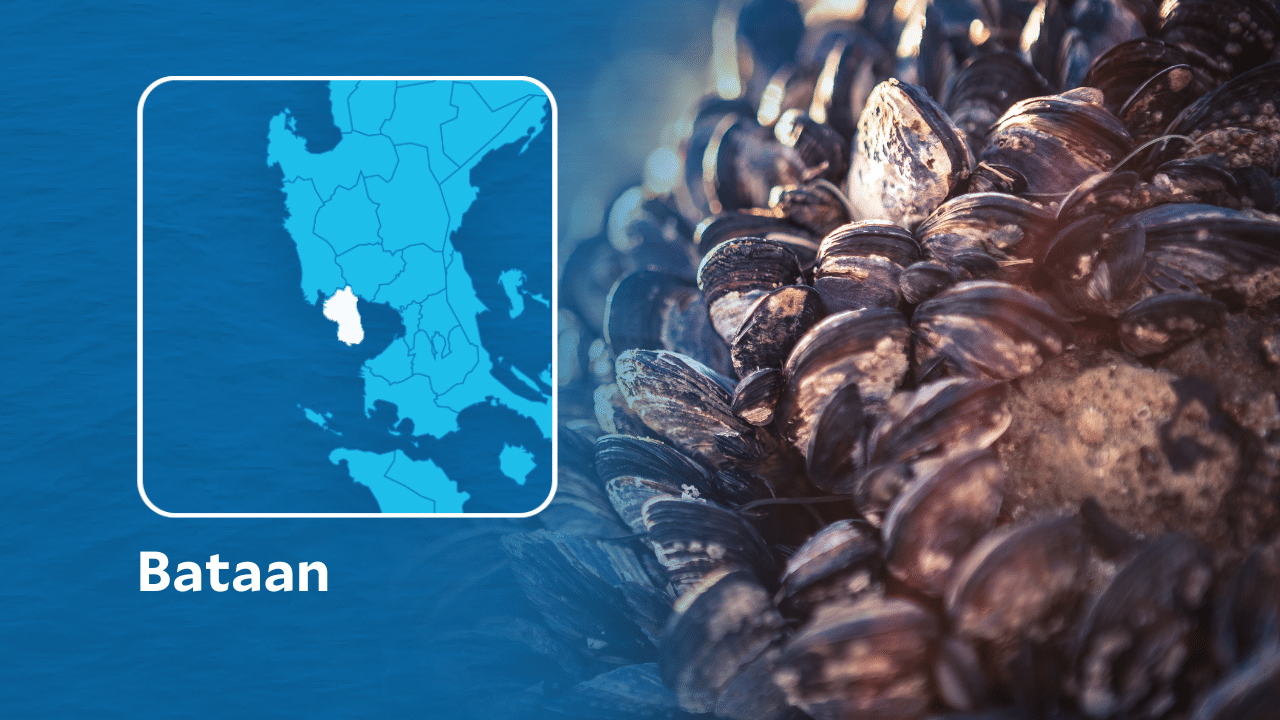MABALACAT CITY — The Bureau of Fisheries and Aquatic Resources (BFAR) said shellfishes from Bataan are now safe for consumption.
This developed as the BFAR lifted the warning it issued Wednesday along Bataan’s coastal waters due to the presence of gymnodinium catenatum, the microorganism that causes toxic red tide and paralytic shellfish poisoning.
High concentration of gymnodinium catenatum usually produce toxic red tides or the turning of sea water into reddish color.
In a shellfish bulletin Friday, July 19, the BFAR national office said all types of shellfishes and acetes sp. or “alamang” from the coastal waters of Bataan province’s Mariveles, Limay, Orion, Pilar, Hermosa, Orani, Abucay, and Samal towns, and Balanga City are now safe to eat.
“To safeguard human lives, we are issuing this warning as a precautionary advice to the public to refrain from gathering, selling and eating all types of shellfishes and Acetes spp. locally known as ‘Alamang’ from (the mentioned localities of) Bataan to avoid possible shellfish poisoning,” the agency said in an previous statement.
READ: BFAR raises red tide alert in some coastal areas in Visayas, Mindanao
In a Facebook post on the evening of July 19, the BFAR Central Luzon said it was glad to announce that the coastal waters of Bataan are now “safe from red tide.”
“After three consecutive analysis, the same shellfishes and water samples no longer have the organism that causes red tide,” it said, adding that it will continue to monitor Bataan’s coastal waters to ensure the safety of the public.
According to the BFAR, fish, squid, crab and shrimp from areas with red tide are still safe to eat if they are fresh and washed thoroughly, and if all their entrails are removed.
Currently, the agency noted that most of the coastal waters of the country are free from toxic red tide, including the coastal waters of Pampanga and Bulacan in Central Luzon.
The BFAR, however, said the only areas still affected by toxic red tide are Honda Bay in Puerto Princesa, Palawan; Dauis and Tagbilaran in Bohol; San Benito in Surigao del Norte; and Dumanquillas Bay in Zamboanga del Sur.
